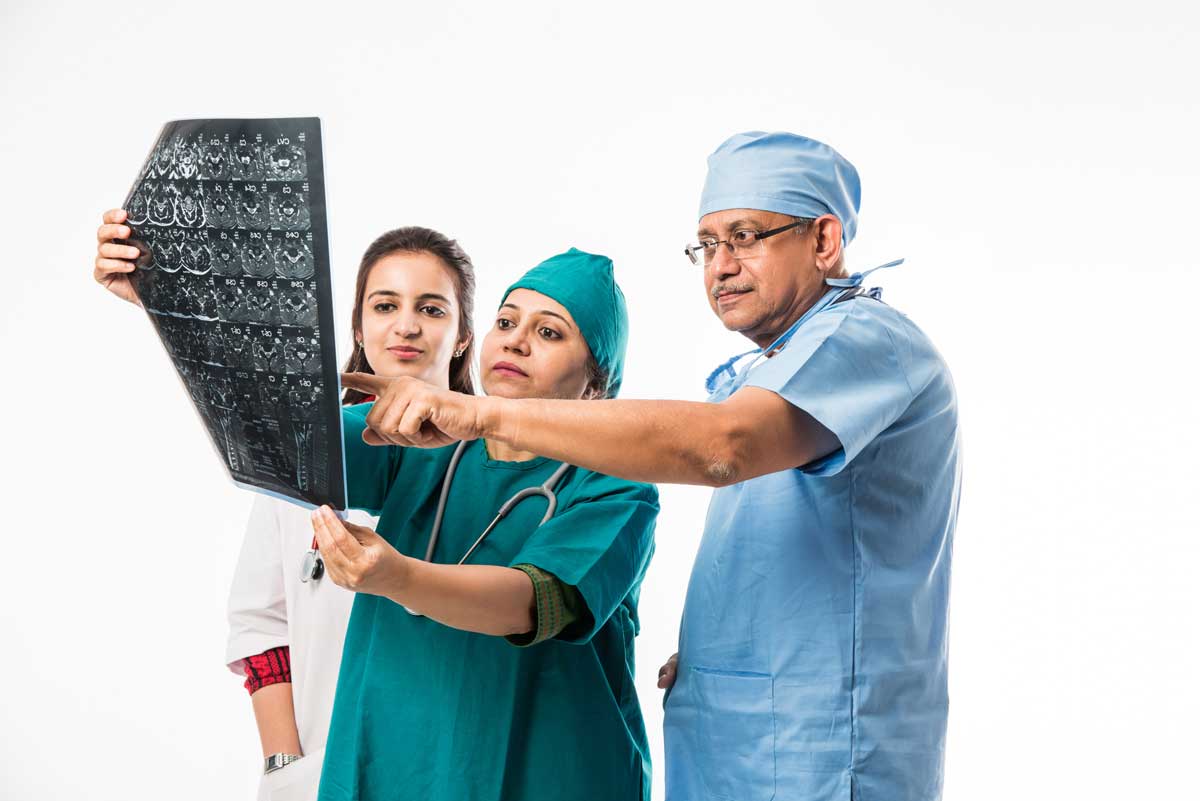The cost of spinal disc replacement surgery in India varies widely depending on factors such as the type of hospital, the city, the surgeon's expertise, and the specific requirements of the surgery. Generally, the cost can range from approximately ₹3,60,000 to ₹6,40,000 (around $4,500 to $8,000).
This procedure typically costs between ₹3,60,000 and ₹5,20,000 (around $4,500 to $6,500). It involves removing the damaged disc and replacing it with a synthetic implant to restore vertebral height and movement.
This can start from ₹5,42,000 (around $6,500), where the entire disc is replaced with an artificial one. This option is often chosen for patients who have not responded to non-surgical treatments.
The cost can also vary based on hospital amenities, the location of the hospital, and the type of room chosen for the stay. For example, treatment in private hospitals generally costs more than in government hospitals.
India offers competitive pricing for these procedures, often significantly lower than in Western countries, without compromising the quality of care. The availability of advanced surgical procedures and experienced surgeons makes India a popular destination for medical tourism.
Spinal disc replacement is a surgical procedure where a damaged spinal disc is removed and replaced with an artificial disc. The spinal discs are like cushions between the bones (vertebrae) of your spine, allowing for movement and acting as shock absorbers. When these discs wear out or get injured, they can cause significant pain and limit movement. Replacing the damaged disc with an artificial one can relieve pain and restore mobility.
Description: This type of disc has a plastic (polyethylene) core sandwiched between two metal endplates.
Function: It mimics the natural disc's ability to absorb shock and allows for movement between the vertebrae.
Description: Contains a dehydrated core that expands when hydrated.
Function: Provides cushioning and flexibility, similar to the natural disc, allowing for normal spine movement.
Description: Made of a polycarbonate urethane core between two metal plates.
Function: Designed to replicate the natural disc's flexibility and cushioning properties.
Description: Typically made of two metal parts or a combination of metal and ceramic.
Function: Allows for movement and flexibility while providing stability to the spine.
Consultation: Initial meetings with the surgeon to discuss symptoms, medical history, and previous treatments.
Imaging Tests: MRI, CT scans, and X-rays to assess the extent of disc damage and plan the surgery.
Blood Tests: Routine tests to ensure the patient is healthy enough for surgery.
Medication Adjustments: Guidance on which medications to stop or continue before surgery, especially blood thinners.
Fasting: Patients are usually instructed not to eat or drink anything for several hours before the surgery.
Lifestyle Adjustments: Advising cessation of smoking and alcohol consumption to improve healing.
Physical Examination: Comprehensive check-up to clear any underlying conditions that might complicate the surgery.
Anesthesia Consultation: Meeting with the anesthesiologist to discuss anesthesia options and risks.
The patient is given general anesthesia to ensure they are unconscious and pain-free during the procedure.
Incision: A small incision is made in the abdomen (for lumbar disc replacement) or neck (for cervical disc replacement) to access the spine.
Retracting Tissues: Muscles and tissues are carefully moved aside to expose the damaged disc.
Removing Damaged Disc: The surgeon removes the damaged disc and prepares the space for the artificial disc.
Implanting Artificial Disc: The artificial disc is inserted into the disc space, using real-time imaging to ensure proper placement.
The muscles and tissues are repositioned, and the incision is closed with sutures or staples.
The surgery typically takes 1-2 hours, depending on the complexity and the specific circumstances of the patient.
Patients usually stay in the hospital for 1-3 days for monitoring and initial recovery.
Medications: Pain relievers and anti-inflammatory medications are prescribed to manage post-surgical pain.
Physical Therapy: A physical therapist may assist with gentle exercises to promote mobility and strengthen the spine.
Movement: Limited activities initially, avoiding heavy lifting, bending, or twisting.
Gradual Increase: Gradual increase in activity levels as advised by the doctor.
Regular check-ups to monitor healing and ensure the artificial disc is functioning correctly.
Full recovery can take several weeks to months, with most patients returning to normal activities within 4-6 weeks.
The success rate for spinal disc replacement surgery is generally high, with many patients experiencing significant pain relief and improved mobility. Studies indicate a success rate of around 80-90%, with most patients resuming normal activities and experiencing long-term benefits.
We help patients from across the globe in taking healthcare decisions and continue helping patients at affordable budget.
We continuously strive to help our patients in the most effective way possible with full transparency and integrity.
To be the most well known and trusted web-based personalized healthcare advisor across the globe.

